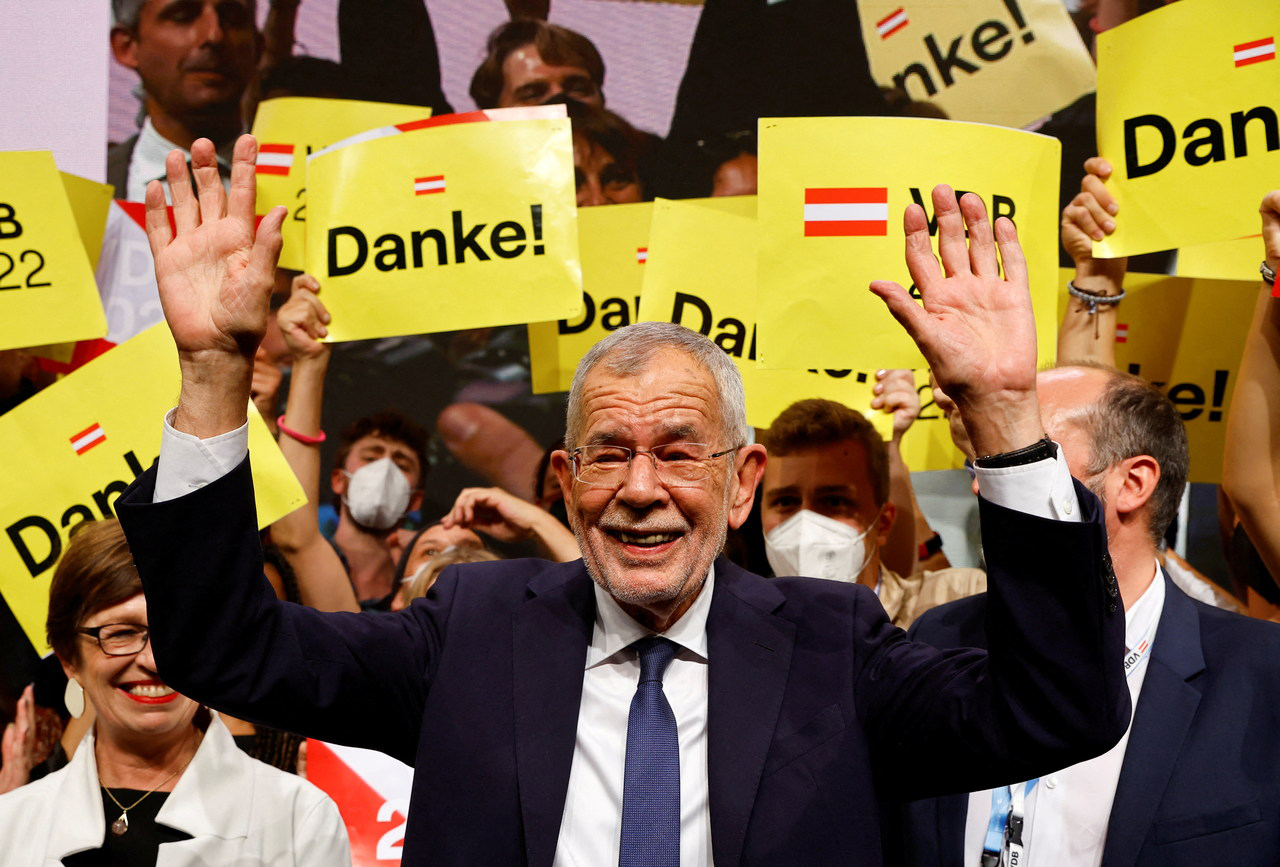An Easy and Quick Re-election for the President of Austria
Alexander Van der Bellen won 56.7% of the vote in the elections in Austria on 9 October, and thus was re-elected in the first round for the next six years. This means in domestic politics a continuation of restraint in interfering in inter-party disputes, and in foreign politics, further verification of Austria’s continued relations with Russia and moderate involvement in the development of regional cooperation.
 LISA LEUTNER/ Reuters/ FORUM
LISA LEUTNER/ Reuters/ FORUM
Why did Van der Bellen win?
The incumbent president beat six competitors thanks to broad political support. Besides the Green Party, which he comes from, he was backed by the liberal NEOS and the Social Democratic Party of Austria, while the Christian Democrat Austrian People's Party (ÖVP) did not put forward a candidate. The only competitor in the elections selected from a parliamentary party was Walter Rosenkranz from the extreme right-wing Freedom Party of Austria (FPÖ). He obtained 17.7% of the vote and was second, which clearly contrasted with the result of the party’s candidate six years ago when Norbert Hofer won the first round of the election but lost by 7.6 percentage points in a repeated second round. Van der Bellen’s re-election was also due to the fragmentation of votes among his competitors, his image as a statesman not involved in political disputes, and the high social trust that Austrians place in the head of state.
What is the president’s record in his first term in office?
Rapid and constant political changes during Van der Bellen’s first term (since 2017), including six changes of Chancellor, strengthened the president’s position as a stabiliser on the domestic political scene. Although the Austrian constitution gives the president relatively limited powers (including external representation of the state, appointment of federal officials, the right to pardon), he plays a key role during cabinet changes. Van der Bellen made use of these prerogatives, among others, by appointing in 2019 the transitional expert government of Chancellor Brigitte Bierlein after the collapse of the ÖVP-FPÖ coalition amidst the Ibiza affair. In turn, in the last election campaign, unlike most of his competitors, he ruled out the dismissal of Karl Nehammer’s government, which was mired in allegations regarding the transparency of ÖVP’s finances. In addition, the Van der Bellen preserved the image of the president during hard times thanks to efficient communication with citizens during the successive government crises and the fight against the COVID-19 pandemic.
How do the election results affect relations with Ukraine and Russia?
Van der Bellen’s victory, despite his earlier gestures such as hosting Vladimir Putin in Vienna in 2018, marks a gradual departure from strengthening relations with Russia at the level of the head of state. This is due to criticism of him for being overly conciliatory in relations with Putin and, consequently, of the criticism of the Austrian president after the Russian invasion of Ukraine. Unlike most of the presidential candidates, Van der Bellen advocated maintaining sanctions against Russia. Only the leader of the Beer Party, Dominik Wlazny (who came in third with 8.3% of votes), distinguished himself from his competitors with an unequivocally pro-Ukraine attitude and a postulate to re-evaluate the Austria’s current eastern policy.
What does the re-election of Van der Bellen mean for Austria’s regional policy and relations with Poland?
Van der Bellen’s re-election means continuation of building good Polish-Austrian relations at the highest level. An important event in this regard was the visit of the Austrian president to Warsaw in October 2021—the first since 2009. An element of it was the promotion of bilateral economic relations. In addition, by visiting the Nazi German concentration camp of Auschwitz-Birkenau, Van der Bellen emphasised the importance of the policy of remembrance, following his participation in 2017—as the first Austrian president to do so—in the commemorations of the liberation of the Mauthausen-Gusen concentration camp.
Despite emphasising the importance of the Three Seas Initiative and participating in some of its summits, Austria remains its least active member. On the other hand, at the presidential level, including through annual meetings with counterparts from Slovenia and Croatia, he works to strengthen smaller regional forms of cooperation, as well as wider groupings within the EU through his participation in the informal Arraiolos Group.


